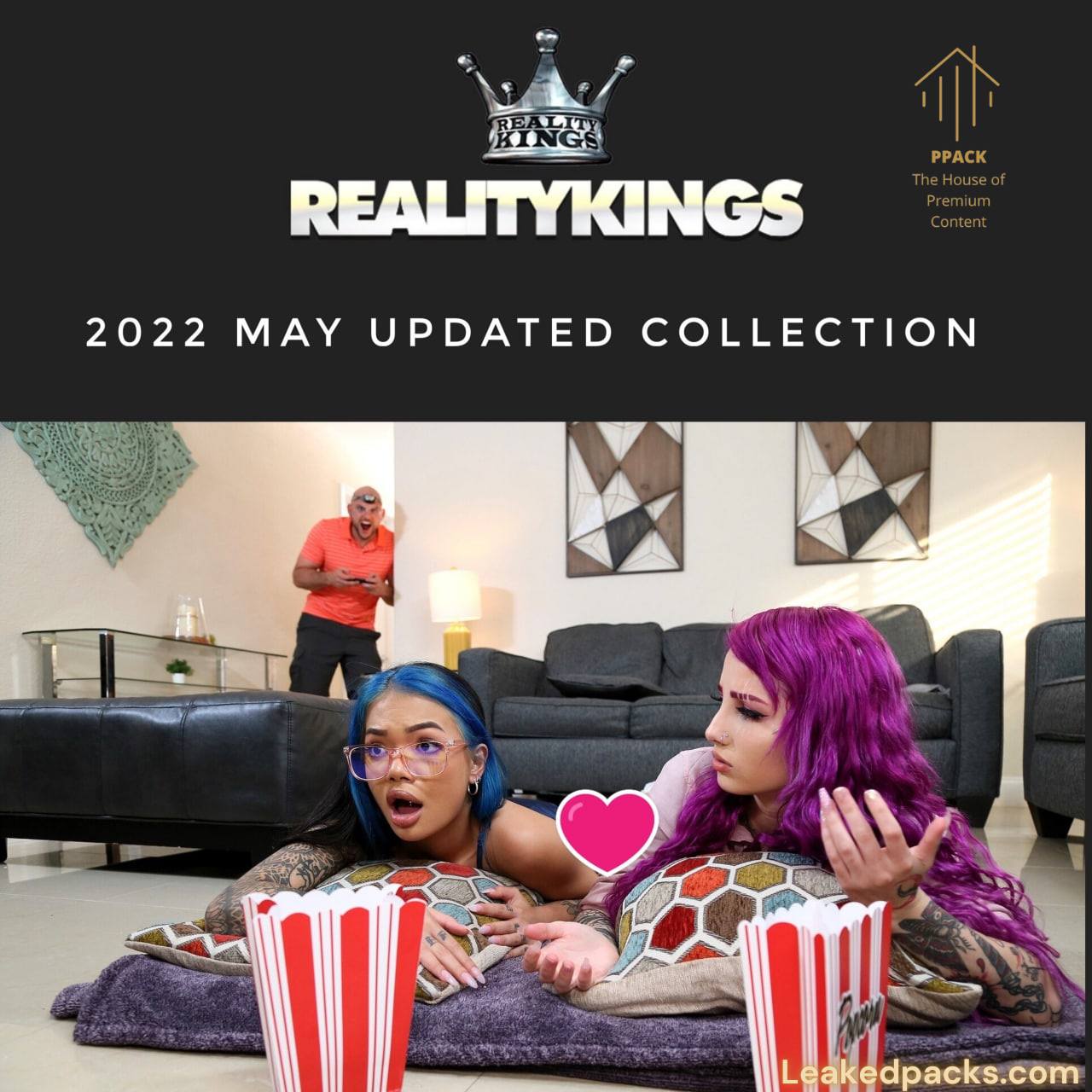Reality Kings - How Modern Perceptions Take Shape
It seems like everywhere you look, the way people see things, what they believe to be true, is changing at a quick pace. There are, you know, these subtle shifts happening, almost like the ground beneath our feet is moving, especially when it comes to what's considered normal or what people expect from life. We often talk about how our experiences shape us, but what about the things that shape our shared sense of what is real? It's a fascinating thought, really, when you stop to consider it, how certain ideas or observations gain so much traction.
This idea of what’s real, what’s happening, seems to be influenced by so many things now, like what people share online or what news stories catch our eye. It’s almost as if certain perspectives or trends become, in a way, the new “reality kings,” guiding how a lot of us view the world. These aren't actual rulers, mind you, but rather dominant ideas or patterns that seem to hold sway over collective thought. They shape our conversations and, you know, even our daily interactions.
We're going to take a look at some of these shifts, from how social connections are seen to how media influences our beliefs. We'll explore how these different forces contribute to what we collectively accept as true, and how these "reality kings" emerge from the everyday chatter and observations that fill our lives. It’s a pretty interesting topic, actually, when you think about it, how what we experience can feel so different from what someone else does.
Table of Contents
- How Does the Internet Influence Our Reality Kings?
- What About Economic Expectations and Reality Kings?
- Exploring Social Dynamics and Reality Kings
- How Does Knowledge Change with Age, and What Are the Reality Kings of Wisdom?
- The Pursuit of Physical Goals and Reality Kings
- Media's Role in Predicting Reality Kings
- Political Perceptions and Reality Kings
- Celebrity Culture and the Rise of New Reality Kings
- Article Summary
How Does the Internet Influence Our Reality Kings?
There's a sense, a lot of people feel it, that the internet has, you know, really changed how we think and what we consider to be true. It’s as if the online world has somehow twisted our collective perception, making some things appear more common or important than they might be in everyday life. For instance, you might see certain trends or observations repeated so often online that they start to feel like universal truths, even if they only represent a small part of the whole picture. This constant flow of information, sometimes unfiltered, sometimes just opinions shared widely, can definitely shape what we believe is happening around us.
When people spend time on various forums or social platforms, they encounter a lot of different viewpoints, and sometimes these platforms can amplify certain ideas, making them seem more prevalent. It’s like a magnifying glass, in a way, on particular aspects of human experience. This can lead to a sense that what's being discussed online is the dominant "reality," even if it’s just one slice of a much bigger pie. So, what gets talked about on these platforms, and how it’s framed, really does play a part in creating these new "reality kings" of perception.
The way information is presented, or even just the sheer volume of certain kinds of posts, can skew our understanding. We might see discussions about very specific social observations, for example, that gain a lot of traction in certain online groups. This kind of concentrated discussion can, you know, make those particular observations feel like a widespread trend, influencing how individuals view broader societal shifts. It's a pretty powerful effect, actually, how online spaces can shape our shared sense of what's real and what's becoming common.
What About Economic Expectations and Reality Kings?
It’s often said, and it’s a pretty common thought, that there was never a time when someone just starting out, say, a 23-year-old, was, you know, automatically flush with money and had a really good job with tons of perks right away. This idea speaks to a broader conversation about economic expectations and the perceived "reality kings" of financial success. There's a common belief that previous generations had an easier path to financial stability, while today's young people face a different set of challenges. This perception itself becomes a kind of shared truth, influencing how people view their own economic prospects and those of others.
The discussions around what it means to be successful, or what kind of financial standing is typical at different life stages, really do shape our collective outlook. You see, people often compare their current situations to an idealized past, or to what they see others achieving, especially online. This can create a sense that certain economic milestones are either harder to reach now or were always, you know, a bit of a fantasy for most people. So, the "reality kings" here are the prevailing ideas about wealth, work, and what’s possible in different economic periods.
When we talk about economic circumstances, it’s also worth considering how different groups might feel about their own standing. The idea that a specific age group should have a certain level of financial comfort is, you know, a very strong societal expectation for some. But the actual experiences can be quite varied. These varying experiences and the conversations around them contribute to the overall picture of what people consider to be the economic truth, influencing their hopes and their worries, pretty much, about money and work.
Exploring Social Dynamics and Reality Kings
When you look at how society works, you might notice that certain groups seem to hold a lot of influence, or at least that’s the general perception. For instance, there’s a sentiment that, say, the managerial class, or those in positions of control, operate in a similar way across different places, like Argentina, for example. This observation points to the idea that certain structures of authority, or these "reality kings" of power, tend to replicate themselves, no matter where you are. It’s about how influence is exerted and how decisions are made that affect everyone else.
And then there are the more personal, social dynamics that get talked about a lot, especially online. You might see conversations, say, on platforms like Reddit, where people are discussing the, you know, very direct experiences of dating after a certain age, like 35. These discussions, sometimes quite frank, paint a picture of what life is really like for some people in those situations. The shared stories and observations, even if they feel a bit harsh, become a kind of "reality king" for those participating in or reading those conversations, shaping their expectations and views on relationships.
These conversations about social experiences, whether they are about broader power structures or individual relationship journeys, really do contribute to our overall sense of what's happening in the world. It’s almost like people are trying to make sense of things by sharing their own observations and seeing if others agree. The patterns that emerge from these discussions, the common threads, become, you know, the prevailing ideas about how social life works. This collective sense of what's real, in a way, becomes the dominant "reality king" in various social circles.
How Does Knowledge Change with Age, and What Are the Reality Kings of Wisdom?
There's this interesting thought that as you get older, you actually realize you know less and less. It's, you know, a pretty surprising feeling for some, almost like a strange experience. This idea challenges the common assumption that more years automatically mean more certainty or more answers. Instead, it suggests that with age comes a deeper appreciation for the vastness of what remains unknown, or a greater awareness of the nuances in life. This changing perspective on knowledge itself can be seen as a "reality king" – the idea that true wisdom might lie in recognizing one's own limitations, rather than claiming to know everything.
This feeling of knowing less as you grow older is, in a way, a shift from a more simplistic view of the world to one that accepts greater complexity. When you are younger, you might feel like you have a handle on things, but as life unfolds, you encounter more situations that defy easy explanations. So, the "reality kings" of wisdom might not be about accumulating facts, but about developing a more open and questioning approach to life. It’s about understanding that there are always new things to learn, and that what you thought was true might, you know, need to be re-evaluated.
This evolving relationship with knowledge also means that what we consider "truth" can change over time, both for individuals and for groups. The things we were sure about in our youth might seem less certain later on. This constant re-evaluation of what we know, or what we thought we knew, is a pretty fundamental part of the human experience. It shapes our personal "reality kings" – the core beliefs that guide us, which are, you know, always a little bit in flux.
The Pursuit of Physical Goals and Reality Kings
When it comes to physical goals, like building muscle, there's a common observation that you can only gain so much muscle, no matter how much you eat. So, the question then becomes, why would you want to, you know, purposely add on a bunch of extra fat? This kind of discussion highlights the "reality kings" of physical fitness and body image – the prevailing ideas about what's healthy, what's achievable, and what's desirable. There’s a constant conversation around what efforts yield real benefits versus what might be counterproductive, especially in online communities dedicated to fitness.
People often share their experiences and advice on how to best achieve certain physical transformations. These discussions can create a shared understanding, a kind of collective "reality king," about the limits and possibilities of the human body. For instance, the idea that there's a natural ceiling to muscle gain, or that adding unnecessary fat is not helpful for overall fitness, becomes a widely accepted truth within these circles. It’s about understanding the practical aspects of training and nutrition, rather than just chasing an impossible ideal. This kind of shared knowledge, you know, guides many people's fitness journeys.
The pursuit of physical ideals is, in a way, influenced by what others are doing and what is considered effective. There’s zero benefit, for example, from certain approaches if they don't align with actual physiological limits. So, the "reality kings" in this area are the practical truths about how our bodies work, as understood and discussed by people who are actively pursuing these goals. It’s a pretty direct way that shared experience shapes what people believe to be the best path for their own physical development.
Media's Role in Predicting Reality Kings
It's pretty interesting how sometimes, a music video, for example, can seem to predict what will happen in the world years later. There's this idea that creative works, like a music video made 14 years ago, somehow, you know, had a glimpse into what our future "reality kings" would be. This speaks to the power of media, and even art, to reflect or even shape our perceptions of what's coming. It makes you wonder how much of what we see and hear in entertainment influences our expectations about the real world, and how much it just happens to align.
These instances where media seems to foreshadow events become a kind of "reality king" in themselves – the notion that art can be prophetic. People often look back at old movies or songs and point out how they, you know, accurately depicted something that later came to pass. This creates a sense that there's a deeper connection between creative expression and actual events. It's a fascinating way that our collective memory and interpretation of media can influence what we believe about the nature of prediction and influence. It's pretty much, a common topic of conversation for some.
The stories we consume, whether through music, films, or other forms of media, definitely play a part in shaping our outlook. They can introduce ideas, possibilities, or even anxieties that then, you know, seem to manifest in our daily lives. So, the "reality kings" of foresight might just be these creative works that, for whatever reason, resonate so strongly that they appear to have seen into the future. It’s a powerful testament to how narratives, even fictional ones, can influence our sense of what's real and what's possible, actually.
Political Perceptions and Reality Kings
When you look at political discussions, it's pretty clear that what people believe to be true can be influenced by specific data points. For instance, there was a particular Pennsylvania poll that, you know, met certain standards for publication, and it showed one candidate ahead of another. This kind of information, when it meets specific criteria for being shared, becomes a powerful "reality king" in the political landscape. It shapes public discourse and influences how people perceive the chances of different candidates, like Trump being ahead of Biden or Clinton in past elections.
The way political information is presented, and which sources are considered reliable, really does impact what people accept as the current state of affairs. A poll, for example, isn't just a collection of numbers; it's interpreted and discussed, and those discussions then, you know, become part of the prevailing political "reality kings." These are the narratives and statistics that dominate the news cycle and public conversations, guiding how people think about elections and political power. It’s a pretty significant way that data, once it's shared, can shape our collective political outlook.
The influence of such reports extends beyond just the immediate election cycle. They contribute to a broader sense of who holds influence and what the political climate is like. When certain results are highlighted, or when specific polls are deemed credible, they help to establish what is considered the true political picture. So, these pieces of information, when they gain traction, become, you know, the accepted "reality kings" of political perception, guiding voter sentiment and public debate, more or less, for a period of time.
Celebrity Culture and the Rise of New Reality Kings
It seems like celebrity culture is always shifting, and new figures are constantly emerging, shaping what we consider to be, you know, popular or influential. There’s talk, for example, about someone being in discussions for their own reality television show. This kind of development, where an individual might gain a public platform, really highlights how new "reality kings" can emerge from the world of entertainment. People might actually watch these shows, drawn in by the personalities involved, and that viewership then helps solidify the individual's place in the public eye.
The idea that anyone, given the right chance, could achieve public recognition is, you know, a pretty common thread in discussions about celebrity. It's almost like there's a perceived pathway to fame that, for some, seems accessible to anyone who has, say, a certain kind of presence or willingness to be in the spotlight. This belief itself becomes a kind of "reality king" in the culture of celebrity – the notion that opportunities for public exposure are, in a way, open to many. It shapes how people view fame and what it takes to achieve it, pretty much, in this day and age.
These discussions about celebrity and public figures also touch on broader societal aspirations. The rise of new "reality kings" in the entertainment world can reflect changing values or what audiences are looking for in terms of public figures. Whether it's about someone becoming a world power, or simply a new face on television, these developments influence our collective sense of who is important and what kinds of stories are worth following. It’s a pretty dynamic area, actually, how public interest shapes what becomes popular and who gains influence, you know, in the public eye.
Article Summary
This discussion has explored how our collective sense of what's real, what we've called "reality kings," is shaped by various influences. We've seen how online platforms can alter perceptions, making certain observations seem more common than they might be. The way we think about economic expectations, like what a young person should achieve, also plays a part in defining these shared truths. Our conversations touched on evolving social dynamics, from broad power structures to personal relationship experiences, showing how these discussions contribute to our understanding of society.
We also considered how knowledge changes as we get older, suggesting that true wisdom might come from recognizing what we don't know. The pursuit of physical goals and the practical limits of what our bodies can do also form a set of "reality kings" based on shared experience. Furthermore, we looked at how media, like music videos, can sometimes appear to predict future events, influencing our sense of foresight. Finally, the role of political polls and the rise of celebrity figures in entertainment were discussed as powerful forces that shape public opinion and what we perceive as important in the world.

RealityKings Logo, symbol, meaning, history, PNG, brand

RealityKings Logo, symbol, meaning, history, PNG, brand

Reality Kings 2024 - Dyane Grethel